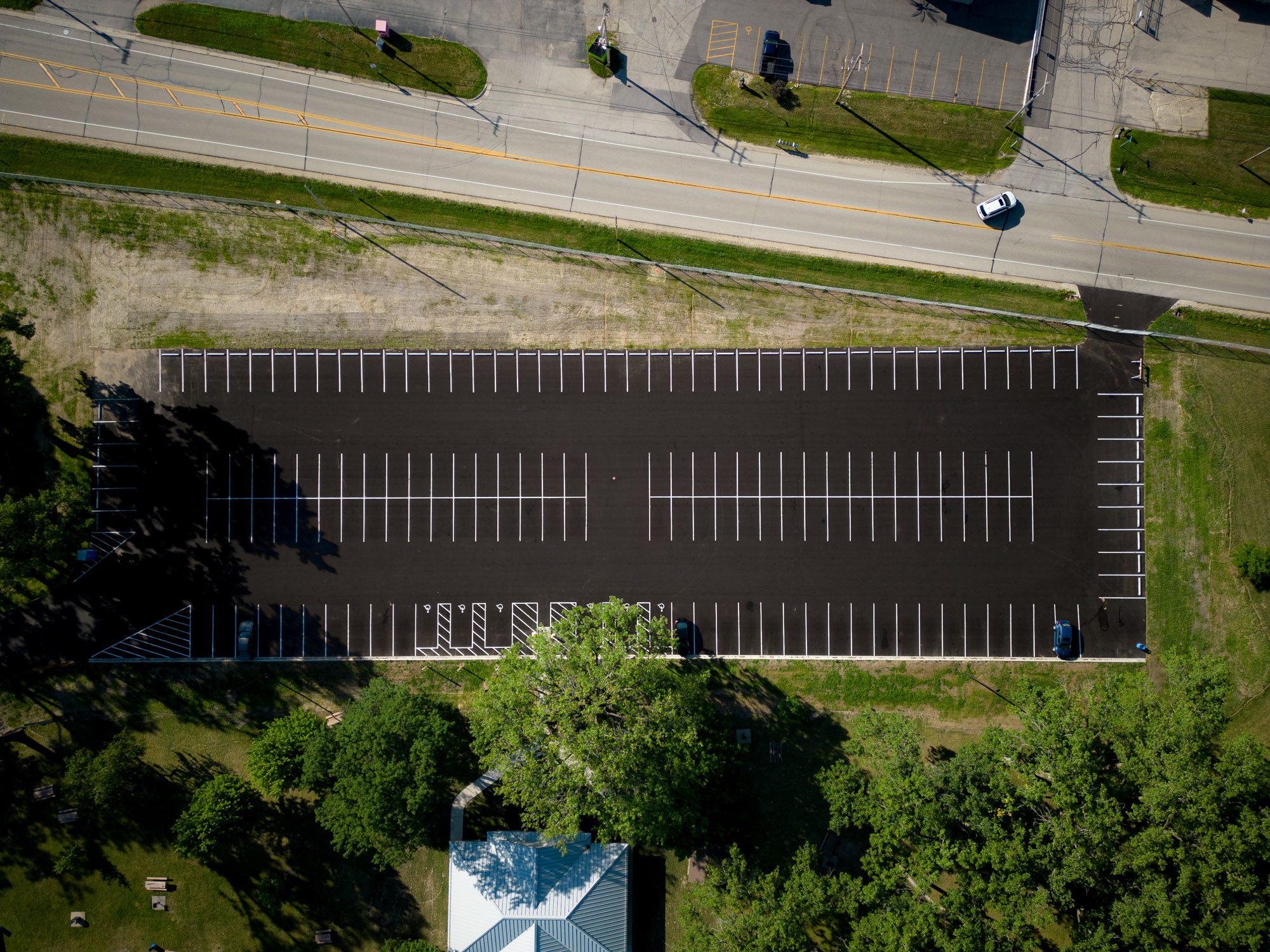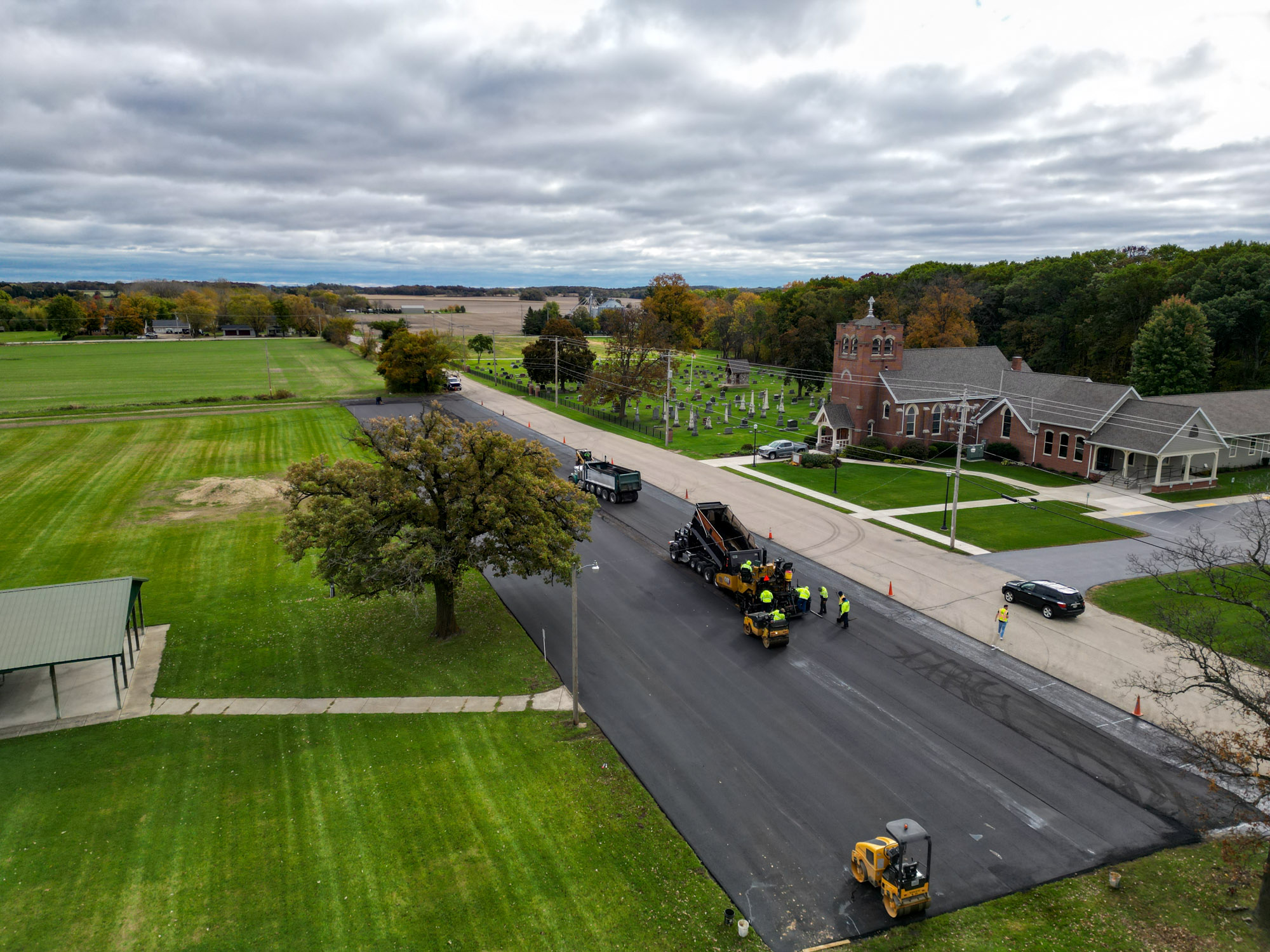How Thick Should an Asphalt Driveway Be in 2024? A Guide for SE Wisconsin

Choosing the right thickness for an asphalt driveway is crucial for ensuring its longevity and performance. In Southeast Wisconsin, where the weather can be particularly harsh, understanding the optimal thickness for an asphalt driveway is essential. Let’s explore the factors that determine the ideal thickness and why it matters for your property.
Why Asphalt Thickness Matters
The thickness of an asphalt driveway affects its durability, strength, and ability to withstand the elements. A properly thickened driveway will resist damage from heavy loads, temperature fluctuations, and moisture infiltration, ensuring it lasts for years to come.
Benefits of Proper Asphalt Thickness
- Durability: A thicker layer of asphalt can handle more weight and traffic without cracking or deteriorating.
- Longevity: Proper thickness extends the life of the driveway, reducing the need for frequent repairs or replacements.
- Resistance to Weather: Thicker asphalt provides better protection against freeze-thaw cycles and moisture penetration.
Determining the Right Thickness for Your Asphalt Driveway
Several factors influence the ideal thickness for an asphalt driveway, including soil type, expected traffic load, and local climate conditions. Here’s a detailed look at these considerations:
Soil Type and Preparation
The type of soil under your driveway plays a significant role in determining the necessary asphalt thickness. In SE Wisconsin, common soil types include clay, sand, and loam, each requiring different preparation methods.
Soil Considerations
- Clay Soils: Require a thicker asphalt layer due to their tendency to expand and contract with moisture changes.
- Sandy Soils: Provide better drainage but may need stabilization to prevent shifting.
- Loam Soils: Offer a balanced foundation but still require proper compaction.
Traffic Load
The amount and type of traffic your driveway will experience is another critical factor. Residential driveways with light vehicle traffic need less thickness compared to commercial driveways that handle heavy trucks and equipment.
Traffic Load Recommendations
- Residential Driveways: Typically require 2-3 inches of asphalt for cars and light vehicles.
- Commercial Driveways: Should have 4-6 inches of asphalt to support heavier loads and more frequent use.
Climate Conditions
SE Wisconsin’s climate, with its cold winters and hot summers, necessitates careful consideration of asphalt thickness. The region’s freeze-thaw cycles can cause significant damage if the asphalt isn’t thick enough to withstand these stresses.
Climate Impact
- Freeze-Thaw Cycles: Thicker asphalt helps prevent cracks caused by the expansion and contraction of water within the pavement.
- Temperature Extremes: A robust asphalt layer resists the softening effects of summer heat and the brittleness of winter cold.
The Asphalt Installation Process
Proper installation is key to achieving the ideal thickness and ensuring the longevity of your asphalt driveway. Here’s an overview of the steps involved in installing an asphalt driveway:
Base Preparation
The foundation of your driveway is critical. A well-prepared base ensures that the asphalt layer adheres properly and distributes loads evenly.
Base Layers
- Sub-Base: Typically 4-8 inches of crushed stone or gravel to provide drainage and stability.
- Base Layer: 2-3 inches of aggregate material compacted to create a solid foundation for the asphalt.
Asphalt Application
Once the base is prepared, the asphalt is applied in layers, each compacted to achieve the desired thickness and density.
Application Steps
- First Layer: A binder layer of 1-2 inches, providing initial strength and bonding.
- Top Layer: A surface layer of 1-2 inches, offering a smooth, durable finish.
Compaction
Compaction is essential to ensure the asphalt layers bond together and achieve the required thickness. This process eliminates air pockets and increases the material’s density.
Compaction Techniques
- Rollers: Heavy machinery rolls over the asphalt to compact it.
- Vibratory Plates: Used in smaller areas to achieve proper compaction.
Common Questions About Asphalt Driveway Thickness
Homeowners in SE Wisconsin often have questions about the ideal thickness for their asphalt driveways. Here are some of the most common queries:
How Thick Should a New Asphalt Driveway Be?
For residential driveways, a total thickness of 2-3 inches of asphalt is typically sufficient. For commercial driveways or areas with heavy traffic, 4-6 inches is recommended.
Can Asphalt Be Too Thick?
Yes, excessive thickness can lead to issues such as poor compaction and uneven settling. It’s important to follow industry standards and professional recommendations for optimal results.
How Often Should an Asphalt Driveway Be Replaced?
With proper installation and maintenance, an asphalt driveway can last 20-30 years. Regular sealcoating and timely repairs can extend its lifespan.
Maintaining Your Asphalt Driveway
Maintenance is crucial to preserving the thickness and integrity of your asphalt driveway. Here are some tips for keeping your driveway in top condition:
Regular Inspections
Conduct regular inspections to identify and address any issues early. Look for signs of wear, cracks, and other damage.
Inspection Tips
- Surface Cracks: Fill small cracks promptly to prevent water infiltration.
- Potholes: Repair any potholes to avoid further damage.
- Drainage: Ensure proper drainage to prevent water from pooling on the surface.
Sealcoating
Sealcoating your driveway every 2-3 years protects the asphalt from UV rays, water, and chemicals. This maintenance step is essential for extending the life of your driveway.
Sealcoating Benefits
- Protection: Shields asphalt from the elements and daily wear.
- Aesthetics: Keeps the driveway looking new and well-maintained.
- Longevity: Reduces the need for frequent repairs.
Investing in Professional Installation
Hiring Asphalt Contractors Inc. ensures that your asphalt driveway is installed to the correct thickness and standards. Here’s what to look for in a contractor:
Experience and Expertise
Choose a contractor with a proven track record and expertise in asphalt installation. Experienced professionals, such as Asphalt Contractors inc, will understand the specific requirements for SE Wisconsin’s climate and soil conditions.
Contractor Selection Tips
- Reputation: Check reviews and testimonials from previous clients.
- Portfolio: Review past projects to assess the quality of their work.
- Certifications: Ensure the contractor is licensed and insured.
Quality Materials
High-quality materials are essential for a durable driveway. Ensure your contractor uses top-grade asphalt and aggregate materials.
Material Considerations
- Binder Content: Higher binder content enhances flexibility and durability.
- Aggregate Size: Properly sized aggregates ensure a strong and stable base.
Comprehensive Services
Asphalt Contractors Inc. will handle all aspects of the project, from base preparation to final sealcoating. This ensures a seamless and professional installation.
Service Offerings
- Base Preparation: Proper excavation and compaction.
- Asphalt Application: Skilled application and compaction techniques.
- Maintenance Plans: Ongoing maintenance services to keep your driveway in top shape.
Choose Asphalt Contractors Inc. for a Long Lasting Driveway
Choosing the right thickness for your asphalt driveway is essential for ensuring its durability and longevity. In Southeast Wisconsin, factors such as soil type, traffic load, and climate conditions play a crucial role in determining the ideal thickness. By following professional recommendations and investing in quality materials and installation, you can enjoy a beautiful, long-lasting asphalt driveway for years to come.
Take Action Today
Ready to install or upgrade your asphalt driveway? Contact Asphalt Contractors Inc. in Southeast Wisconsin to discuss your needs and get started on your project.


